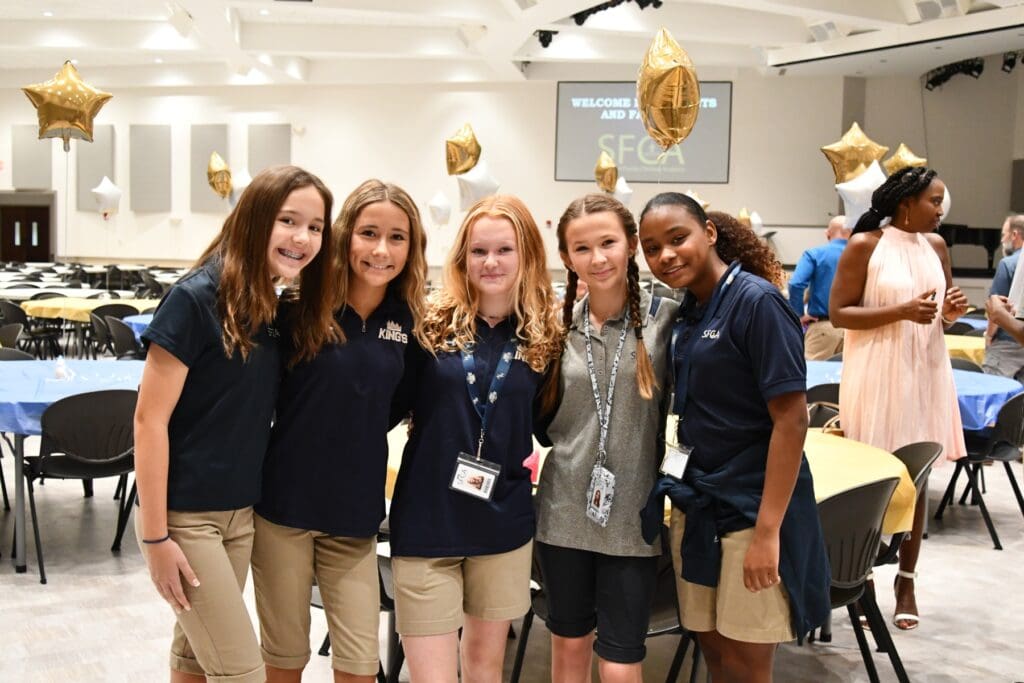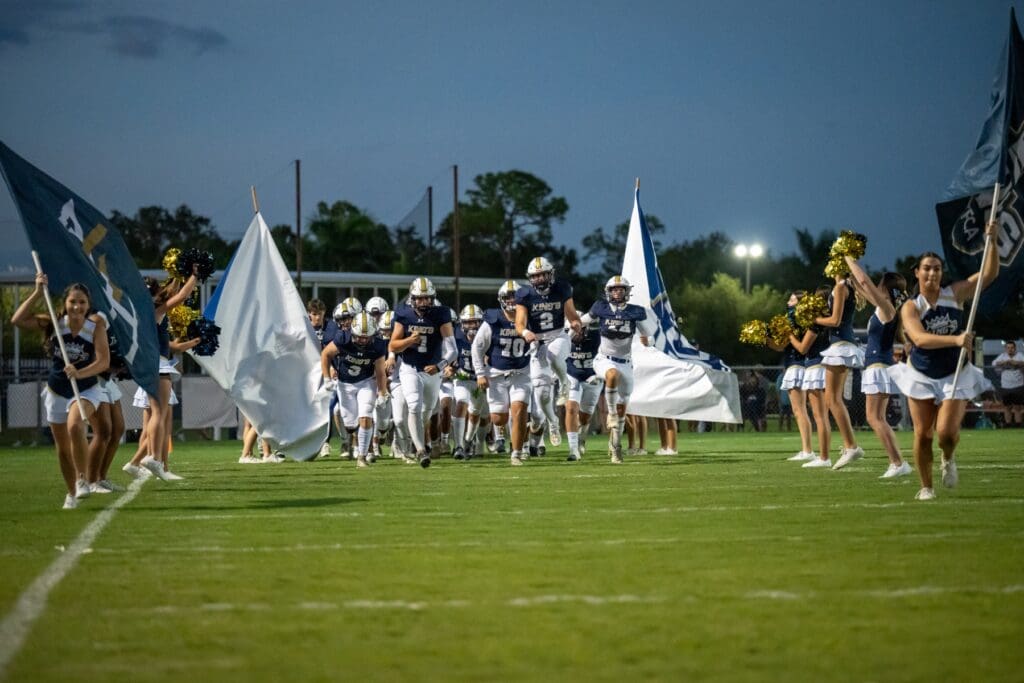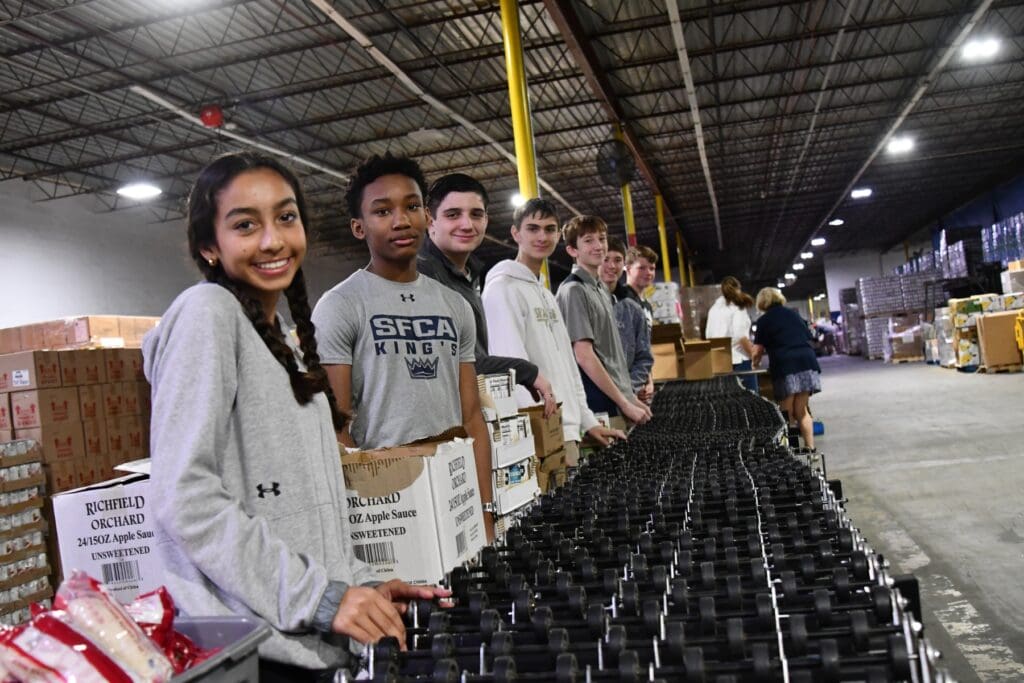No One Sits Alone: How to Make Sure Your Teen Finds Friends in High School

Focus on Culture
While you might encourage your teen to have a conversation starter in their back pocket for their first day, you’ll want to make sure they’re in the right environment to begin with. Look for a school that purposefully sets new students up for success and encourages positive teen friendships every day with best practices like these:
- New student orientations: One way to ease anxiety about your teen’s first day is to get them acclimated to school before it starts. New students should be introduced to staff, principals, counselors, student government representatives, student activities coordinators, and others on campus. During orientation, they can review their schedule and practice walking to their classes as they learn their way around campus and meet their teachers.
- 1-to-1 peer pairings: New high schoolers should be matched up with another student in the same grade with similar interests who can help them acclimate. For example, a baseball player may be paired with another baseball player, while a student interested in drama may be paired with a performing arts student. There may also be programs over the summer where new students can get to know others before school starts, such as through athletic conditioning programs.
- Small groups: Look for a school that creates a purposeful environment to foster friendships. For example, at Southwest Florida Christian Academy (SFCA), high schoolers are paired into small groups, known as Impact groups, of 12-15 teens. These students are divided by gender and age and led by a dedicated teacher. The groups remain together throughout all four years of high school, allowing strong connections to form.
- Individual mentors: In addition, a relational culture should be innate in the high school you’re considering. Your child should have the opportunity to have a go-to mentor they can trust, whether a coach, teacher, school office staff member, or another adult on campus.
- Counselor check-ins: You’ll want to look for an environment where everyone goes the extra mile, including school counselors, who make it a point to check in with new students frequently at the start of school and continue to check in with them throughout the academic year.
Teachers who care: Beyond the classrooms, a school culture that encourages friendships will have teachers and faculty who have lunch in the cafeteria with students, have a pulse on the student body, and are around to make sure no one is sitting alone. They’ll notice if a student is in need of a listening ear or an encouraging word.
Emphasis on Clubs & Extracurriculars
Whether your teen is starting out as a freshman or changing schools in high school, it’s important they have multiple ways to be involved on campus. They need to feel welcomed, seen, and have a great experience that will set them up for social and emotional success as young adults.
While athletics are often an important part of the high school experience, you’ll also want to consider opportunities such as the following:
- Band
- Choir
- Digital arts
- Drama
- Math club
- National Honor Society
- Student advisory council
- Student government
- Visual arts
Stephanie Laymon, High School Principal at SFCA, shares that Bible study groups are a big draw among students. Some teens also enjoy taking part in the school’s Student Leadership Academy, a unique extracurricular in which students meet weekly to debate current events or topics and look at them from a biblical perspective. They also travel to annual conferences in Orlando, FL, or Washington, D.C.
All the while, they gain skills in career preparation, including interviewing and resume development. Plus, they meet with alumni, congressmen, and local business professionals who share what it looks like to go to college, get a job, enlist in the military, and have a family.


Opportunities for Connections Off Campus
You’ll also want to explore a school’s trips and community projects designed to promote additional friendship activities for teens.
At SFCA, for example, high schoolers in Grades 9-11 take an “Unplugged” multi-day class trip each year to Florida’s Lake Ocklawaha, where they leave technology behind to enjoy nature, outdoor sports, competitive games, and praise and worship. Seniors can volunteer to attend and support faculty, who serve as camp counselors. Additionally, in 12th grade, students bond on a weeklong adventure to Greece, journeying to destinations recorded in Acts, a book in the Bible they’ve studied throughout the year.
Naturally, as you compare the best environment for your teen, consider the approaches a school takes to bring students together in engaging and educational ways outside of the classroom.
Ready to set your teen up for success?
Learning how to make new friends in high school doesn’t have to be difficult for your teen. See how they can find their place at SFCA. For more information, contact Amy Long in our Admissions Office at amy.long@sfcakings.org or (239) 936-8865, ext. 1472.